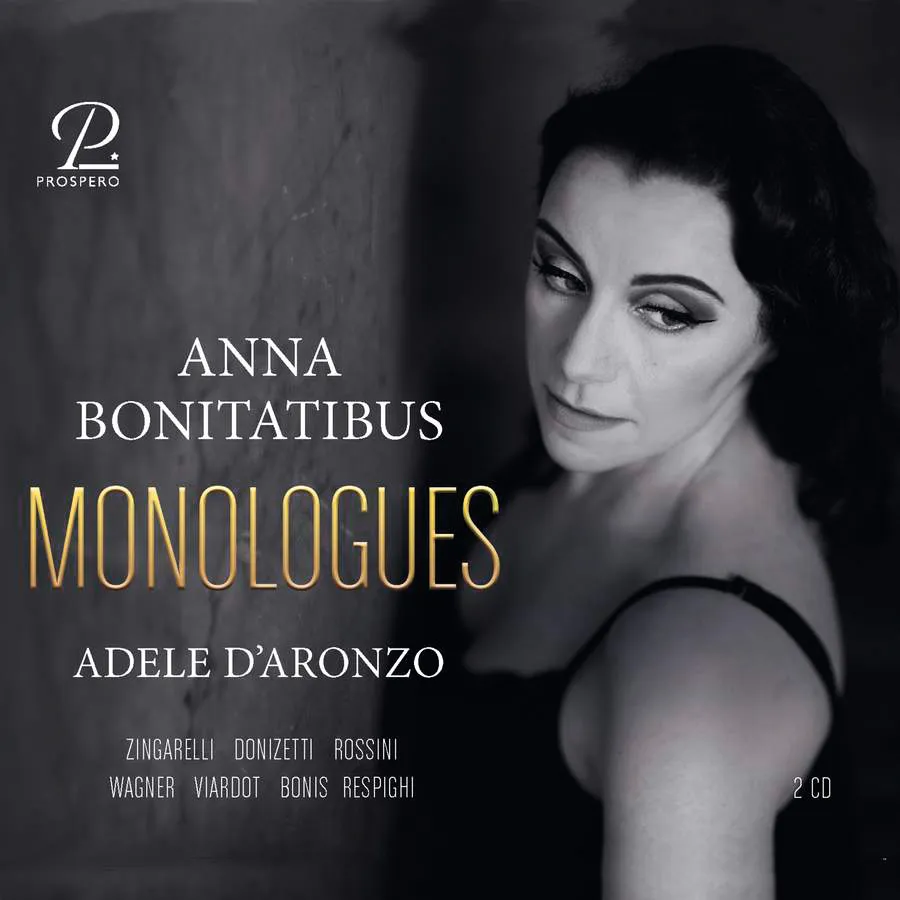
Monologues Arias and Monologues by Bonis, Donizetti, Respighi, Rossini, Viardot, Wagner and Zingarelli Anna Bonitatibus (mezzo), Adele d’Aronzo (piano) Prospero Classical PROSP0068 80:59 mins (2 discs)
An artist who researches and performs worthwhile but forgotten music presents a selection of solo works that have largely fallen into obscurity.
Barely remembered these days even for his once popular opera Giulietta e Romeo (1796), Niccolò Zingarelli (1752-1837) is the composer of the monologue Ero, which narrates the story of Hero and Leander in a quasi-operatic scena some 24 minutes in length in which Bonitatibus is responsive both to the text and to Zingarelli’s dramatically conceived setting.
Vocalist and pianist seize on the possibilities of Donizetti’s Saffo – probably written for the composer’s future wife to sing, and possibly to his own text – delivering the work’s musical ideas with flair. Equally full of masterly invention, Rossini’s Giovanna d’Arcois described by the singer as a ‘mini-opera’ which she attacks with sure and certain aim.
Composed in Paris in 1839 by a 26-year-old Wagner, Les Adieux de Marie Stuart once again finds in Bonitatibus an expert interpreter, her tone laden with emotion and her technical skills maximising its potential for virtuosity.
Even rarer is Hermione by the singer-composer Pauline Viardot, to a text from Racine’s play Andromaque. Setting a translation of Shelley, Respighi’s haunting 1911 Aretusa shows the influence of Debussy and Ravel in its flamboyant piano writing. In both, Bonitatibus’s interpretations go to the heart of these extraordinary pieces. Collaborative pianist Adele D’Aronzo, meanwhile, presents some demanding accompaniments to impressive effect, while as a soloist she makes something special out of Mel Bonis’s brilliantly effective dance for piano, Salome (1909).
George Hall